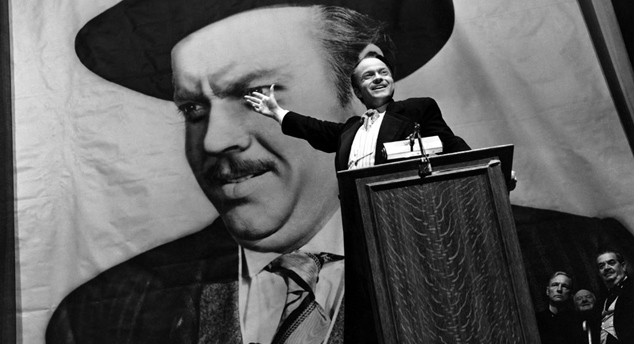3. Citizen Kane
8 Jul
dir. Orson Welles
Considered by many to be the best film of all time, Orson Welles’ Citizen Kane changed the way movies were made. Welles brought his unique knowledge of theatre and radio – along with a refusal to acknowledge his own limitations – and crafted a film that is a perfect blend of the visual, the audio, and the dramatic. The film studies the life of a great man, Charles Foster Kane, who eventually loses everything due to his own unfulfillable needs. Like the visual quality of the film, the storytelling itself is unique and spellbinding, favoring other characters’ interpretation of Kane over his own; it is, in many ways, the perfect way to make a movie about a public figure, who is defined as much by other people’s opinion as his own actual identity. As we search for the key to unlocking the mystery of Kane, we soon find that the complexity of the filmmaking is meant as an expression of the internal complexity, not only of Kane, but of us all. It is a film that concludes that nobody can be summed up by one object, one relationship, one career. Each person’s life is a vast, interwoven tapestry of experiences, beliefs, and actions that can never be totally understood nor explained. It is a staggering, confident work that has forever shaped the way film is made, and watched.




No comments yet